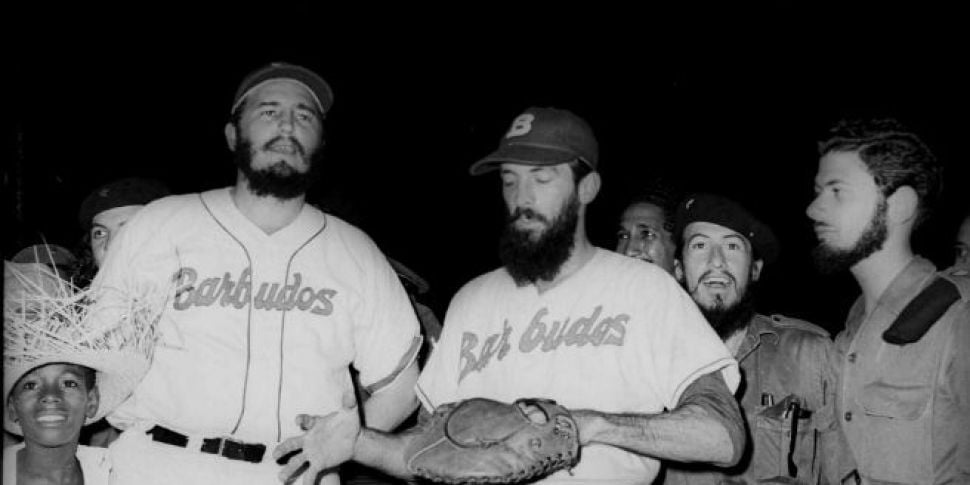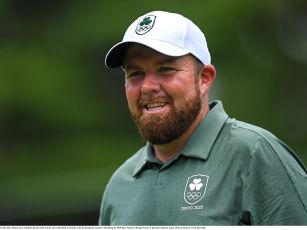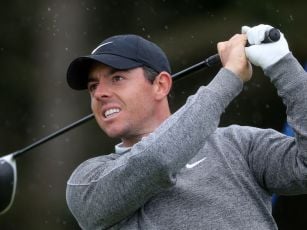On March 22nd 2016, Havana's Estadio Latinoamericano played host to a seminal event.
Major League Baseball franchise Tampa Bay Rays took on the Cuban national team with both outgoing United States president Barack Obama and his Cuban counterpart Raul Castro, brother of Fidel, watching on.
It was a sign of how a sport recognised as an American pastime had a role in reflecting the thawing or cooling of relations between the superpower and the small island that had defied it under the late Fidel Castro's regime at the height of the Cold War.

U.S. President Barack Obama, right, and his Cuban counterpart Raul Castro wave to cheering fans as they arrive for a baseball game between the Tampa Bay Rays and the Cuban national baseball team, in Havana, Cuba, Tuesday, March 22, 2016. (AP Photo/Rebecca Blackwell)
Baseball of course has a very long history in Cuba as I discussed with Professor Robert Elias of the University of San Francisco, whose book The Empire Strikes Out: How Baseball Sold U.S. Foreign Policy and Promoted the American Way Abroad, details the way the sport has sometimes interwoven with US foreign policy objectives.
Baseball has always had a nationalistic bent in Cuba going back to its introduction to the island by American sailors and Cuban students returning from the US in the 1860s.
"The Cubans had tried to mount several independence movements away from Spain and, interestingly enough, baseball was thought to be representing certain values of democracy and independence. So it was almost as if the sports were fighting with each other because baseball was played by people who were progressive and people who were independent-minded as a way of pushing back against bull-fighting," says Elias.
"As a result of that, the Spanish empire, several times banned baseball because they considered it a revolutionary game and they were right. It was true that there was a lot of organising done at baseball games and by baseball teams for political purposes."
But it wasn't until the latter years of the 19th century that the US "associated the spread of the sport with not only American values but American interests abroad".
"Probably the first big attempt to export it as Americanism was the tour organised by Albert Spalding, who was a prominent figure in baseball, and he did a world tour of baseball. The whole idea was to really try and spread American influence, show how Americans were superior and also to spread his sporting goods business," Elias explains.

Fidel Castro wearing the uniform of the Barbudos army baseball team takes warm-up pitches before the start of the short exhibition game at night on July 24, 1959 in Havana, Cuba. Castro pitched one inning for the army team. (AP Photo)
He also adds that a lot of this spreading of values abroad through the game "is also related to military interventions" and was engaged in the Spanish-American war, some of which was fought over on Cuban soil in the shadow of the Monroe Doctrine which saw the US opposed to European colonisation in the Americas.
Born in 1926, Fidel Castro was born 22 years after the Cuban republic was proclaimed in 1902, and in an era when US influence was increasing on the island economically.
Baseball was something that greatly interested the country's future leader, although rumours that he once tried out for Major League Baseball teams are exaggerated according to Elias.
"What we do know is that he was very devoted to baseball and played it. There were rumours of try-outs but I don't think there were actually any try-outs where he was invited. There was a little bit of fuzziness on his relationship with the Washington Senators, which was one of the US teams but it was pretty clear that he wasn't a serious prospect," he says of Castro, who would also try cricket many years later.
However, what was serious was how baseball became another theatre for battles after Castro had led the 1959 revolution and the new government found itself in opposition of its powerful near neighbour at the height of the Cold War.
In an echo to the 19th century, Castro used the sport as another outlet for nationalism, not too differently to the way the Cuban independence movement had done so against the Spanish.
"He had much to draw on because the Cubans were already fanatical about baseball before the revolution," says Elias.
"He decided that promoting baseball was an important thing after the revolution and with few other things to push back against the encroachments of the United States after the revolution, including assassination attempts to overthrow the revolution and embargoes, he tried to use sport, particularly baseball but also boxing, as a way of trying to push back against the imperial power."
But there was pushing back through baseball from the US side as well.
Firstly in 1960, Baseball Commissioner Ford Frick - reportedly spurred on by the then-Secretary of State Christian Herter - decided to move the Havana Sugar Kings minor league baseball team that played in international leagues, away from Cuba and relocate it to New Jersey under a new name.

In this June 1962 file photo, Cuba's Premier Fidel Castro takes his turn at bat during a baseball game at a teachers' school in the Sierra Maestra area of Cuba. Despite deep political and ideological differences over the years, Cuba and the United States have always shared a love of baseball. The Wednesday, Dec. 17, 2014 announcement that the U.S. plans to restore diplomatic ties with the Caribbean nation could usher in a new era in U.S.-Cuba baseball relations, which were strained after the Castro revolution and the U.S.-led economic embargo. (AP Photo, File)
"The US, I think, over-reacted and baseball pulled that team. And so Castro made the decision that baseball was not going to be professional in Cuba, that everyone's going to play baseball and that it would be organised along an amateur level; but that strong national teams would compete in international and regional competitions and that's what they did," says Elias, adding that the national team's subsequent success internationally meant there was little negative knock-on effect.
"I think Castro felt that sport was a way of pushing back and maybe in particular sticking it to the Americans because it's supposed to be 'America's game.'"
Castro did describe the idea of professional baseball as "slave baseball" which fed into anti-capitalist Communist rhetoric.
The Sugar Kings example wasn't the only way that baseball was used as another front in the US-Cuban enmity.
In the same year, the Commissioner decided to ban US-born players from taking part in the winter leagues in Cuba.
"They more or less went along the lines of Cold War politics basically and so they did things that they otherwise might not have. Baseball gets a lot of benefits from waving the flag for America and so it may do things that are not even in its own self-interest sometimes," Elias explains.
Ultimately, it was amateur baseball that would reign in Cuba after the end of professionalism in 1960-61, with elite players subsidised.
However, given the wages available, many Cuban players decided to defect to the US, with even Castro himself quoted as admitting that, "if you have to compete against six million dollars versus three thousand Cuban pesos you cannot win".
Prior to his death last week, the long-time Cuban leader had left the presidency after ill-health about decade ago as his brother Raul took over the regime.
As evidenced by the March 2016 exhibition game in a type of "baseball diplomacy", there has been a slight thawing of relations between the US and Cuba.
But with Donald Trump assuming the US presidency in January, the immediate future relationship with the Cuban regime has now become all the more unpredictable.
"Up until the election, it appeared there was an opening that's occurring. Cuba seems more flexible on not trying to block players from coming to the United States and the Major League seem more sympathetic to giving a better deal for the Cuban players. But we don't know whether that will be reversed any way by any Trump policies towards Cuba generally," says Elias.
Download the brand new OffTheBall App in the Play Store & App Store right now! We've got you covered!
Subscribe to OffTheBall's YouTube channel for more videos, like us on Facebook or follow us on Twitter for the latest sporting news and content.








